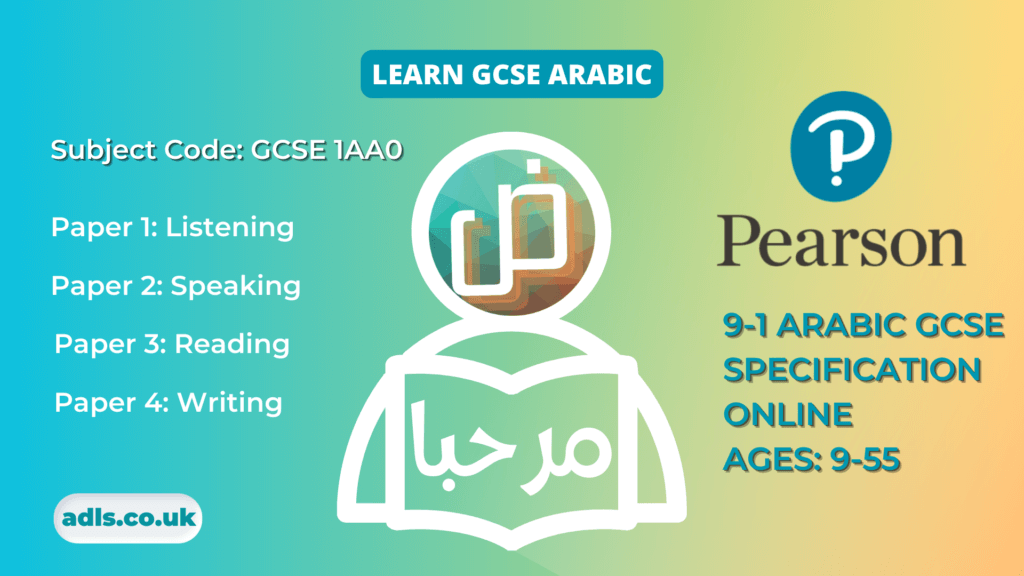GCSE Arabic Exam Tips and Preparation
Preparing for the GCSE Arabic exam requires a smart and structured approach. Success isn’t just about memorising content, but also about understanding the exam format, using efficient strategies, and building confidence in language use. Below are key tips and techniques to help you get top marks.

Targeted Revision
Focus your revision on the core themes of the syllabus (e.g., identity, culture, education, global issues). Use your past assessments to identify weak areas and revise those topics first. Make vocab lists for each theme and focus on high-frequency words.
Exam Techniques
Read all instructions carefully. In the listening and reading sections, don’t panic if you don’t understand every word—look for context clues. For writing and speaking, always plan your structure before you begin and use a range of tenses and connectives to impress the examiner.
Practice Materials
Use past papers from Edexcel or AQA, along with mark schemes. Incorporate flashcards, listening exercises, translation tasks, and GCSE Arabic apps. Record yourself speaking and compare it to model answers to boost fluency.
Time Management
Practice completing past papers under timed conditions. Learn to pace yourself: if one question is taking too long, move on and return later. Keep an eye on the clock during the real exam so you leave enough time for checking your answers.
Good Preparation Is the Key
Start revising early, ideally 2–3 months before the exam. Create a revision timetable that balances all skills—reading, writing, listening, and speaking. Don’t just cram vocabulary—understand how to apply it in context.
Examiner Tips and Feedback
Examiners want to see accuracy and variety. Use ambitious vocabulary, but only if you know how to use it correctly. Avoid memorised responses that don’t fit the question. Make sure your writing is relevant and clearly structured.
Parrot Fashion Learning – The Good and The Bad
Memorising model answers can help with structure and fluency, but blind repetition can backfire. Examiners can spot rehearsed answers that don’t fit the question. Use memorisation as a base, but adapt your answers to fit the exam task.

Spotting a Potential Question
Learn to predict the type of questions that come up frequently (e.g., daily routine, school, holidays). Practise answering these in different formats—letters, articles, or dialogue—to build versatility.
Know Your Question Words
Words like متى (when), لماذا (why), أين (where), ماذا (what), كيف (how) appear in almost every paper. Understanding these helps you understand the task correctly and avoid losing marks.
Arabic Verbs Fluency
Strong command of past, present, and future tenses is vital. Practise conjugating verbs across pronouns. Knowing verb roots helps with unfamiliar vocabulary and sentence building.
Best Times of the Day to Revise
Revise during your peak focus hours, often mid-morning or early afternoon. Avoid heavy revision late at night or just after meals when energy drops. Spread short sessions across the day to avoid burnout.
How Many Hours Should You Spend Revising?
Start with 1–2 hours per day, increasing gradually as exams approach. Break sessions into 25-minute focused blocks with short breaks in between. Over-revising can lead to fatigue, so quality over quantity is key.
By combining consistent revision, smart techniques, and active language use, you’ll be well-prepared to succeed in your GCSE Arabic exam.
For more Arabic revision, exam support or lessons contact us or follow online.
GCSE Arabic Exam Tips and Preparation online with ADLS Arabic.


